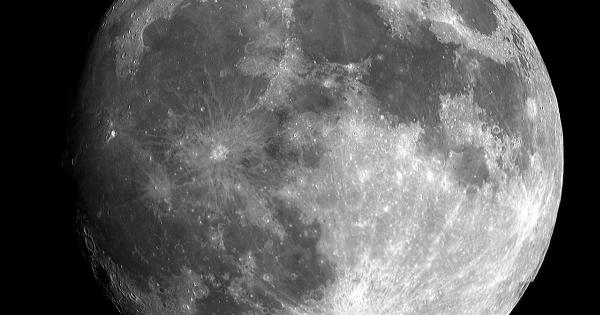The lunar cycle has long been a subject of fascination and speculation. Many cultures believe that the moon has a significant impact on various aspects of our lives, including sleep and fertility.
In this article, we will explore the relationship between the lunar cycle and these two crucial aspects of human health.
The Lunar Cycle
Before delving into the effects of the lunar cycle on sleep and fertility, it is important to understand what the lunar cycle is. The lunar cycle refers to the changing phases of the moon as it orbits around the Earth.
It takes approximately 29.5 days for the moon to complete one full cycle.
Sleep and the Lunar Cycle
There have been numerous studies conducted to assess the potential impact of the lunar cycle on sleep patterns. While some studies have found a correlation between lunar phases and sleep quality, others have not yielded significant results.
Research Findings
A study published in the journal Sleep Medicine involved monitoring the sleep patterns of participants for a month.
The researchers found that during the full moon phase, participants experienced a decrease in sleep efficiency and an increase in sleep latency. However, the study also noted that the effect was only significant for individuals with no access to artificial light. This suggests that natural light exposure during a full moon may disrupt sleep for some people.
On the other hand, a separate study published in Current Biology found no significant relationship between lunar phases and sleep patterns.
The researchers analyzed data from over 8,000 individuals and failed to identify any consistent sleep disturbances associated with the lunar cycle.
Possible Explanations
While the exact reasons behind the mixed findings remain unclear, several theories have been proposed to explain the potential impact of the lunar cycle on sleep.
One theory suggests that the moon’s gravitational pull may influence sleep by affecting tidal rhythms within the body. Another theory proposes that the moon’s brightness during specific phases may disrupt the body’s internal clock, leading to sleep disturbances.
Fertility and the Lunar Cycle
Similar to the speculation surrounding the lunar cycle and sleep patterns, there has been ongoing curiosity about whether the moon could influence fertility.
Some ancient beliefs and traditions associate specific lunar phases with increased fertility or higher chances of conception.
Research Findings
Multiple studies have been conducted to investigate the potential relationship between the lunar cycle and fertility.
However, the majority of these studies have not found any significant evidence supporting the notion that lunar phases directly impact fertility rates or chances of conception.
A comprehensive review published in the journal Fertility and Sterility examined 74 studies on this topic and concluded that there was no scientifically significant correlation between lunar phases and fertility.
The review analyzed data from a wide range of sources, including natural fertility rates, assisted reproductive technology outcomes, and conception rates in different populations.
Possible Explanations
Although there is no substantial evidence linking the lunar cycle to fertility, it is essential to understand the reasons behind the prevailing beliefs.
One possible explanation is that the lunar cycle lasts about the same time as the average menstrual cycle in women. This coincidence could lead to a perceived connection between the two phenomena.
Additionally, it is worth considering the psychological aspect.
Belief in the lunar cycle’s impact on fertility may provide individuals with a sense of control or explanation when trying to conceive, particularly for those facing challenges or undergoing fertility treatments. Psychological factors can greatly influence perception and belief systems, even in the absence of concrete scientific evidence.
Conclusion
Despite widespread beliefs and ancient traditions associating the lunar cycle with sleep quality and fertility, scientific evidence is inconclusive on both accounts.
While some studies suggest a potential relationship between the lunar cycle and sleep disturbances, others find no significant evidence supporting this claim. Similarly, numerous studies have failed to establish a direct link between the lunar cycle and fertility rates or chances of conception.
It is important to approach these topics with a critical mindset and rely on scientifically rigorous studies to draw accurate conclusions.
Ultimately, personal experiences, cultural beliefs, and individual psychological factors may influence the perception of any purported effects of the lunar cycle on sleep and fertility.































